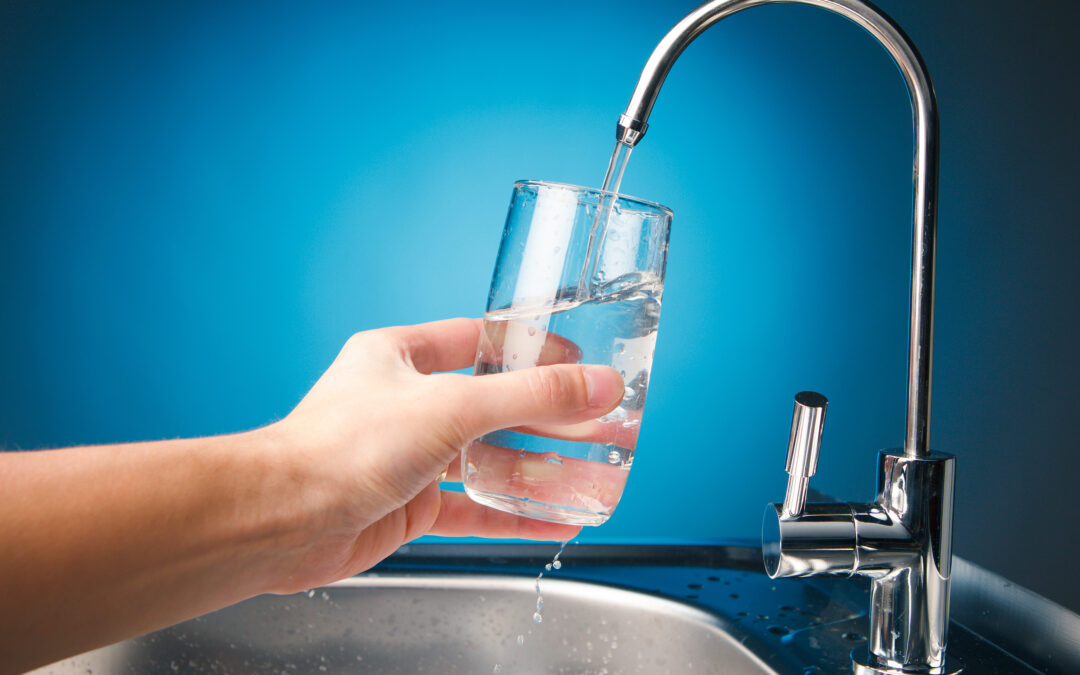Providing a clean and safe water supply is essential for homeowners relying on well water. Unlike municipal water, which is treated to meet strict standards, well water can contain various contaminants, from sediment and bacteria to heavy metals and chemicals. That’s where a well water filtration system comes in–a critical tool for filtering out impurities and protecting your family’s health.
Investing in a reliable, long-lasting filtration system doesn’t just improve water quality; it also helps extend the lifespan of your plumbing and appliances by reducing buildup from contaminants. But with so many options on the market, choosing the right well water filtration system can feel overwhelming. This guide will walk you through seven expert tips to help you select a system that’s effective, durable, and perfectly suited to your needs.
Assess Your Water Quality Needs
Understanding the unique qualities of your water supply is the first and most critical step in choosing the right well water filtration system. Well water can vary widely in composition depending on factors like geographic location, depth, and surrounding land use. Testing your well water provides valuable insight into which contaminants are present, helping you select a filtration system that effectively addresses your specific needs.
Importance of Knowing What’s in Your Well Water
Well water may contain impurities like sediment, bacteria, iron, lead, pesticides, and even volatile organic compounds (VOCs). By testing your water, you’ll have a clear picture of what you’re dealing with, making it easier to identify which well water filtration system will provide the right level of protection. For example, if your water contains high levels of bacteria, you may benefit from a system with UV filtration to eliminate microbial threats. Alternatively, high iron content would suggest the need for an iron filter to prevent rust stains and plumbing damage.
In short, water testing not only helps you make a more informed decision but also ensures that your well water filtration system will effectively purify your water, protecting both your home and health. Most local health departments or certified laboratories can provide thorough water quality assessments to guide you in selecting the ideal system for your well water needs.
Understand Different Types of Well Water Filtration Systems
Selecting the ideal well water filtration system means understanding the different types of filtration options available and how each addresses specific contaminants. Every filtration type has a unique purpose, so identifying the one that fits with your water quality needs is important to keeping clean, safe water throughout your home.
Key Filtration Types and Their Uses
- Sediment Filters: Sediment filters are designed to remove particles like sand, dirt, and rust, which can be common in well water. These filters serve as the first line of defense in a well water filtration system, preventing larger particles from clogging subsequent filters or damaging your plumbing.
- Activated Carbon Filters: Known for their ability to remove chlorine, bad tastes, and odors, activated carbon filters are highly effective at improving water flavor and purity. They can also reduce certain chemicals, including VOCs, which may be present in well water. Incorporating an activated carbon filter into your well water filtration system can improve both the safety and taste of your water.
- UV Filters: UV filtration uses ultraviolet light to neutralize bacteria, viruses, and other harmful microorganisms. If bacterial contamination is a concern in your well, a UV filter can be an essential component of your well water filtration system to ensure microbiologically safe water for your household.
- Iron Filters: High levels of iron can cause rust stains on fixtures and discoloration in laundry. An iron filter specifically targets and removes iron and manganese, preventing these elements from accumulating and preserving the quality of your water and plumbing.
- Reverse Osmosis (RO) Systems: Reverse osmosis is a comprehensive filtration method that can remove a wide range of contaminants, including dissolved solids, heavy metals, and some chemicals. Though RO systems are often used for drinking water, they can be included in a full-well water filtration system for high-purity water.
By understanding the range of options available, you can create a well water filtration system that is tailored to address the specific contaminants found in your water. Investing in the right combination of filtration types will ensure that your water is as clean, safe, and pleasant-tasting as possible.
Look for High-Quality Filtration Materials
When choosing a well water filtration system, the quality of the materials used is just as important as the system’s design. High-quality filtration materials not only improve the system’s effectiveness in removing contaminants but also ensure durability, helping the system stand up to daily use without compromising performance.
Why Material Quality Matters in a Well Water Filtration System
A well water filtration system is often exposed to varying water pressures, mineral deposits, and potential contaminants, so it’s essential to select a system made from durable, reliable materials. Here are some key materials to look for:
- Stainless Steel Components: Stainless steel is a highly durable material resistant to corrosion, which is especially important if your well water contains minerals that could corrode weaker metals over time. Stainless steel housings and fittings help maintain the integrity of the well water filtration system, ensuring it operates efficiently over years of use.
- High-Grade Plastics: Certain parts of a well water filtration system may be constructed from high-grade, BPA-free plastics. High-grade plastics can resist cracking and withstand high pressures, making them a reliable choice for parts that come into contact with water. Ensuring the plastics are certified food-grade and BPA-free also provides additional peace of mind about water safety.
- Quality Filter Media: The type of filter media (the material inside filters that traps contaminants) also plays a crucial role. High-quality media, such as activated carbon, ceramic, or KDF (Kinetic Degradation Fluxion) media, enhances the system’s ability to remove specific contaminants efficiently. For example, activated carbon effectively traps chlorine and VOCs, while KDF can remove heavy metals like lead and mercury. Investing in high-quality filter media makes sure that your well water filtration system performs optimally.
Consider Water Flow Rate and Capacity
A well water filtration system must match the demands of your household to deliver a consistent, efficient water supply. Understanding the water flow rate and capacity of your filtration system is key to avoiding reduced pressure, insufficient filtration, and unnecessary wear on the system.
Ensuring Your Well Water Filtration System Can Meet Demand
The water flow rate, typically measured in gallons per minute (GPM), reflects how quickly water moves through your plumbing and filtration system. High-usage households with multiple bathrooms, appliances, and water fixtures may need a well water filtration system with a higher flow rate to prevent drops in water pressure. When selecting a system, aim for a flow rate that aligns with your peak water usage times–for example, mornings or evenings when showers, dishwashers, and washing machines may all be in use.
Capacity is another important factor. This refers to the volume of water that the well water filtration system can effectively filter before it requires maintenance or filter replacement. A system with a higher capacity is ideal for larger households, as it reduces the frequency of filter changes and maintenance, ensuring you always have access to fresh, filtered water.
Set a Realistic Budget Without Sacrificing Quality
Investing in a well water filtration system can significantly improve your water quality and home value, but finding the right balance between cost and quality is essential. While it’s tempting to opt for the most affordable option, a reliable and effective filtration system is a long-term investment that shouldn’t compromise on quality. By setting a realistic budget and focusing on essential features, you can secure a high-quality filtration system that meets your needs without overspending.
Finding Balance Between Cost and Durability in a Well Water Filtration System
When budgeting for a well water filtration system, it’s helpful to consider both upfront costs and long-term expenses. High-quality systems may have a higher initial cost, but they often feature better materials, more effective filtration, and reduced maintenance needs, saving you money in the long run. Look for systems with durable components, certified filters, and reliable warranties to ensure you’re investing in a product built to last.
Tips for Maximizing Value Without Compromising on Quality
- Prioritize Essential Features Over Extras: Many well water filtration systems come with add-ons that, while nice, may not be necessary for your specific water needs. Focus on the features that address your contaminants and filtration requirements, and avoid paying for unnecessary extras.
- Consider Long-Term Filter Replacement Costs: Some filtration systems require frequent filter changes, which can add to your overall cost over time. Opt for a well water filtration system that uses long-lasting filters, or research replacement costs in advance to understand the total cost of ownership.
- Compare System Lifespan and Warranty Coverage: Look for a well water filtration system with a strong warranty and a reputation for longevity. A system with a longer lifespan and comprehensive warranty coverage can provide added peace of mind, as well as reduce potential repair or replacement costs over time. Checking reviews and manufacturer guarantees can help you identify systems built to last, giving you confidence that your investment will deliver value over the years.
Contact AAA Water Systems Today!
Choosing the right well water filtration system is an essential step in ensuring safe, clean water for your home. By assessing your water quality needs, understanding different filtration types, and prioritizing quality materials and certifications, you can make an informed decision that protects your family’s health and offers long-term reliability. Setting a realistic budget and finding a system with the right flow rate and capacity will further enhance the effectiveness of your well water filtration system, making it a smart investment for years to come.
At AAA Water Systems, we’re here to help you find the perfect well water filtration system tailored to your needs. With expert guidance and a range of high-quality systems, we make it easy to enjoy pure, healthy water right from your well. Contact us today to learn more about our filtration solutions and take the first step toward safer, cleaner water for your home.


